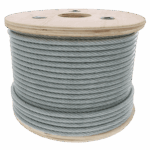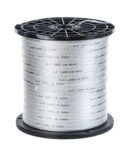Polyester vs Nylon Rope: Which Is Best for Your Application?
Selecting the right rope for the job starts with understanding the material, and at Erin Rope, we offer two trusted, high-performance options: polyester and nylon.
Each material is engineered to deliver reliable strength and durability, serving different applications based on its unique performance characteristics.
In this guide, we’ll compare the key differences between our polyester and nylon rope products to help you choose the best solution for your specific material handling requirements.
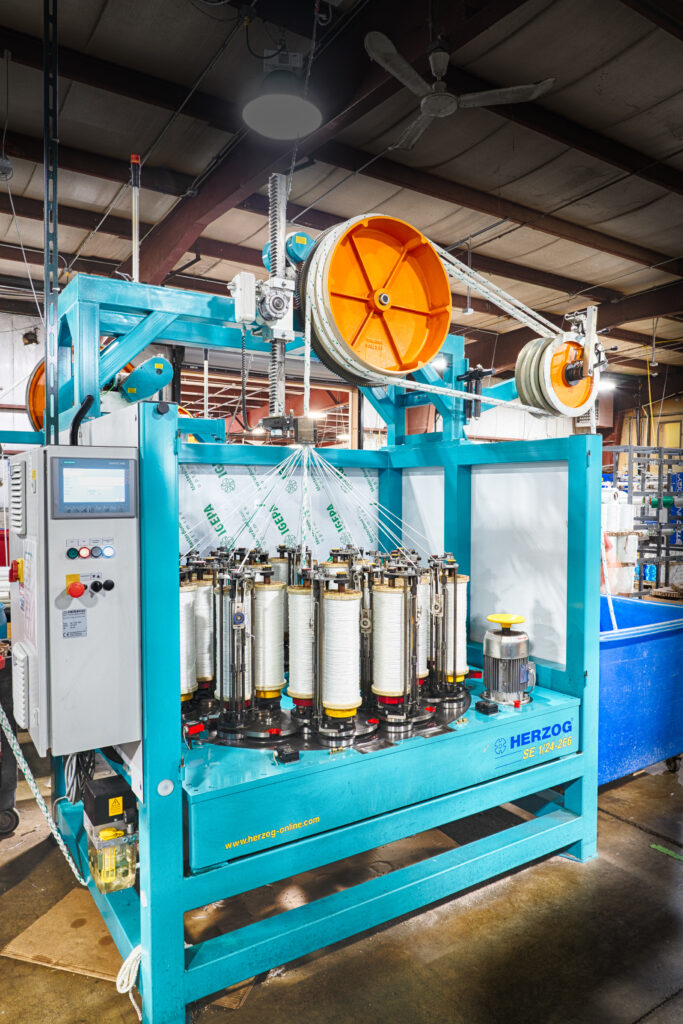
Polyester Rope: Durable, UV-Resistant, and Built to Last
Our polyester rope products are built for strength, consistency, and long-term durability in demanding environments. Known for their low stretch, high tensile strength, and excellent resistance to abrasion and UV exposure, polyester ropes are a trusted solution across marine, construction, utility, and outdoor industrial applications.
This category includes a range of constructions, from traditional twisted and braided ropes to flat polyester pull tape. Whether you’re securing static loads or installing fiber optic lines underground, polyester provides the reliability needed to get the job done.
Key Benefits of Polyester Rope
- Low Stretch & High Strength: Maintains dimensional stability under load with minimal elongation, making it ideal for static applications.
- Excellent Abrasion Resistance: Durable against contact surfaces and repeated use, which helps extend rope service life.
- Superior UV & Weather Resistance: Resists degradation from prolonged sun exposure and harsh environmental conditions.
- Flexible & Easy to Splice: Medium lay construction balances strength with ease of handling for knotting and splicing.
Common Applications for Polyester Rope
- Heavy-Duty Rigging & Lifting: 12-strand polyester rope is ideal for slings, winch lines, block and tackle setups, and arborist work, thanks to its high strength, spliceability, and abrasion resistance.
- Marine & Dock Use: Suitable for mooring lines, anchor lines, and fender lines where strength and UV stability are essential.
- Utility & Telecom Installations: Polyester pull tape and braided rope are commonly used for pulling cable through conduit in underground and overhead installations.
- General-Purpose Tie-Downs: 8-carrier diamond braid polyester rope is great for securing tarps, tents, canopies, and gear for recreational, residential, or commercial use.
- Construction & Job Sites: Used for staging lines, barricade rope, safety tie-offs, and other field applications requiring dependable static performance.
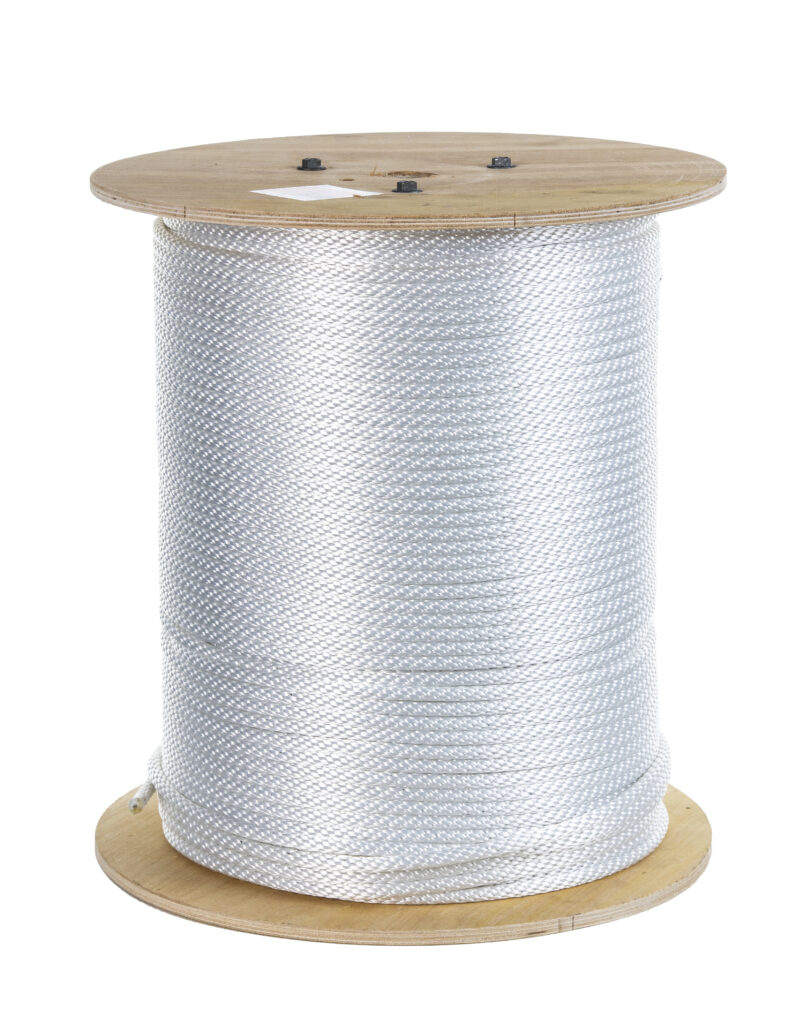
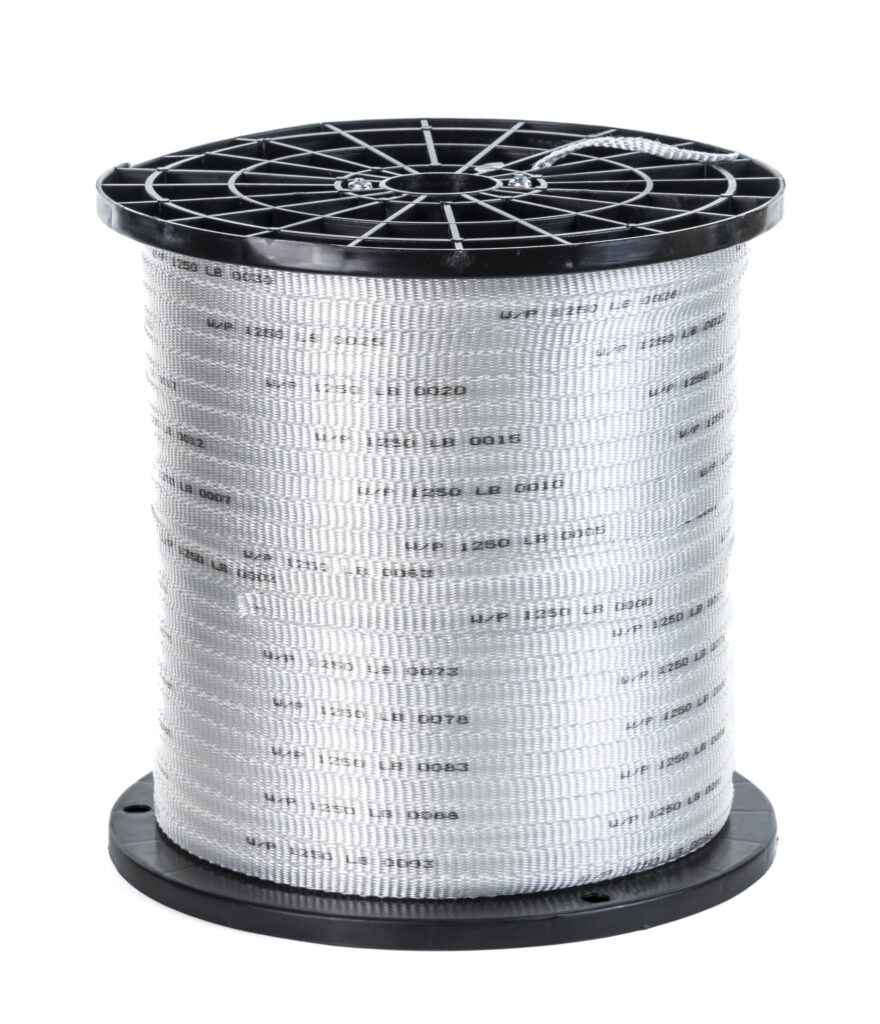
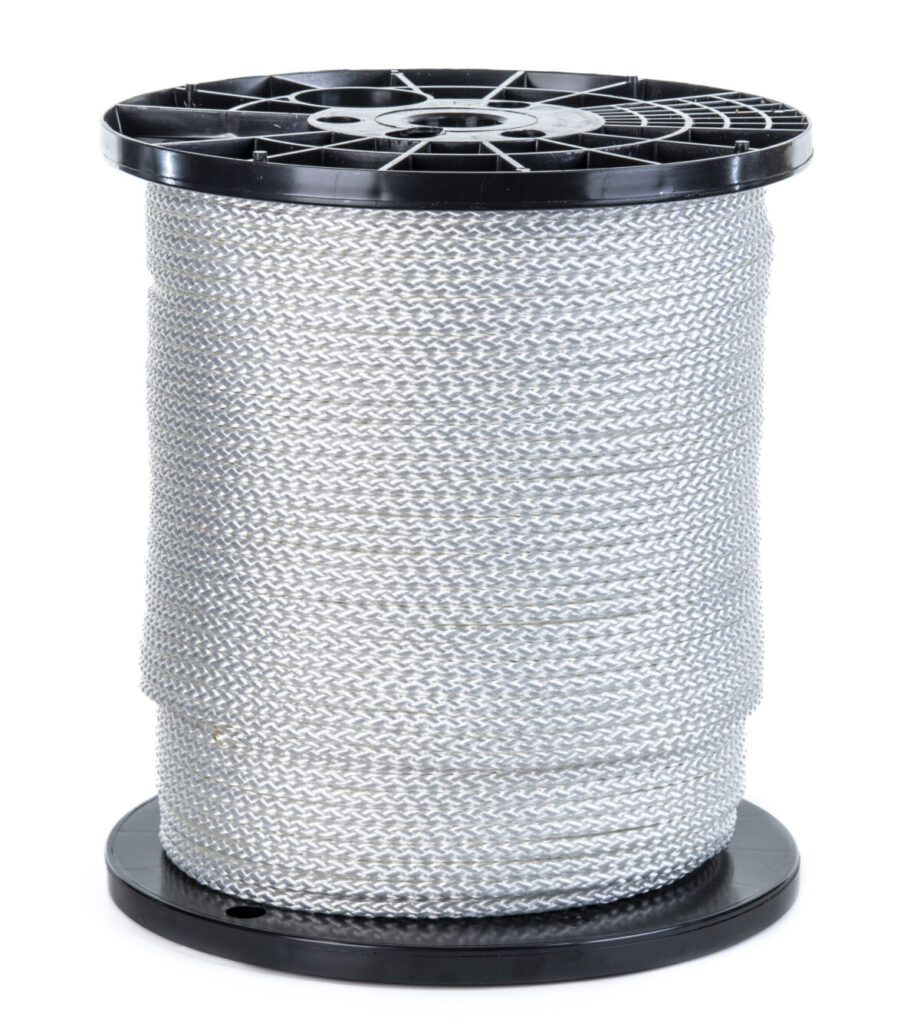
Nylon Rope: Strong, Shock-Absorbent, and Built for Dynamic Loads
Our nylon rope products are engineered for performance in environments where high strength and elasticity are essential. Known for their ability to absorb sudden shock loads, nylon ropes are a trusted solution when dynamic forces, impact, or movement are part of the job.
This category encompasses a wide range of constructions, from classic 3-strand twisted nylon to double braid and solid braid options, which offer a smooth feel, high strength, and resistance to wear. It also includes nylon ropes with galvanized aircraft cable cores, designed for applications requiring internal reinforcement and added security.
Key Benefits of Nylon Rope
- High Strength & Stretch: Nylon offers one of the highest tensile strengths among synthetic fibers, with natural elasticity that helps reduce peak loads under tension.
- Excellent Abrasion Resistance: Performs reliably when used with hardware, pulleys, or contact surfaces, extending rope life in harsh working environments.
- Weather & Chemical Resistant: Resists rot, mildew, UV rays, and petroleum products, making it well-suited for wet, humid, or industrial conditions.
- Flexible & Easy to Handle: Most constructions are easy to knot, coil, and in some cases splice, providing versatility in field conditions.
- Reinforced Core Options Available: Solid braid nylon with a galvanized aircraft cable core provides enhanced strength, tamper resistance, and cut prevention in security-focused applications.
Common Applications for Nylon Rope
- Towing & Recovery: Ideal for dynamic loads where stretch is critical.
- Marine & Dock Use: Performs well in dock lines, anchor lines, and mooring setups, where elasticity and water resistance protect both vessels and hardware.
- Construction & Job Sites: Used for hoisting lines, safety barriers, and temporary rigging where impact absorption and flexibility are essential.
- Safety & Fall Protection: Frequently found in lifeline systems, controlled descent setups, and fall arrest lines when paired with compliant hardware.
- General Utility: 8-carrier and solid braid constructions are used for light-duty tie-downs, flag halyards, blinds, and recreational gear, where knot retention and smooth handling are essential.
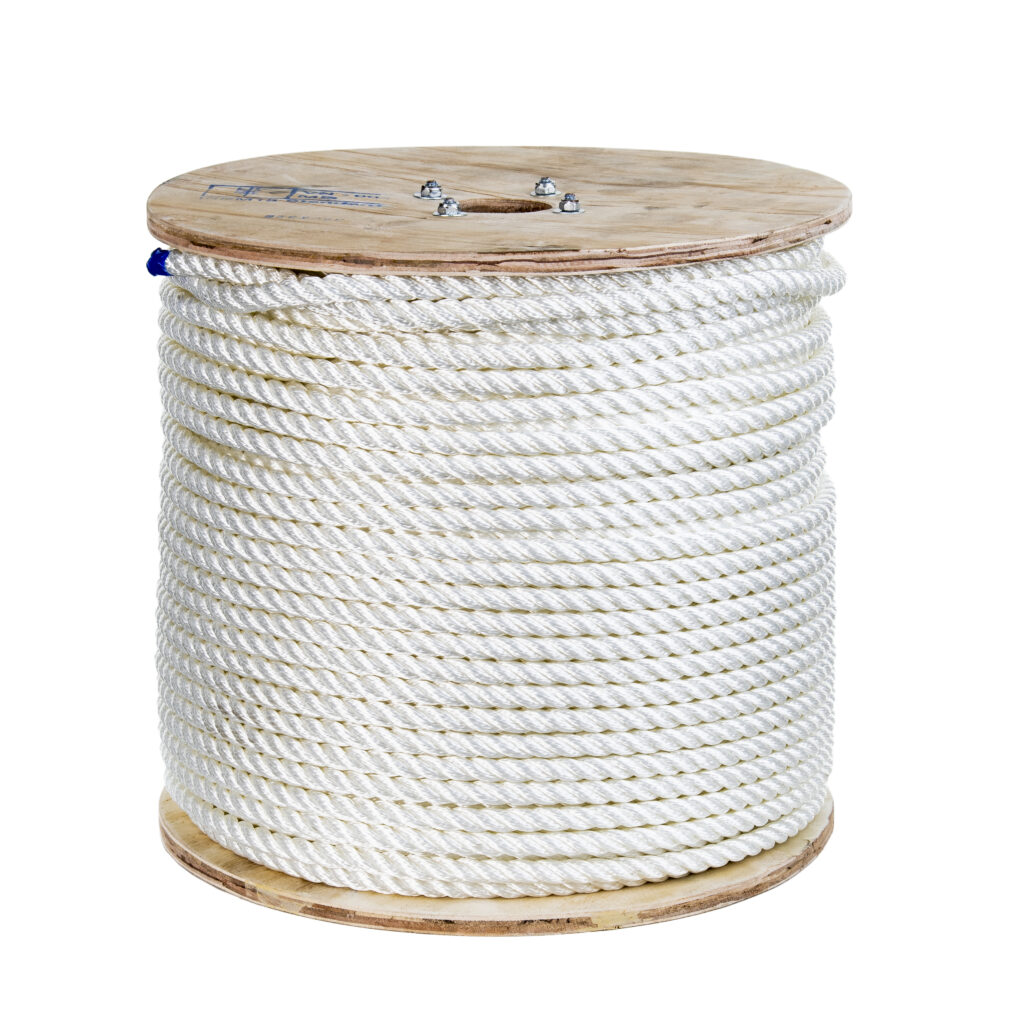
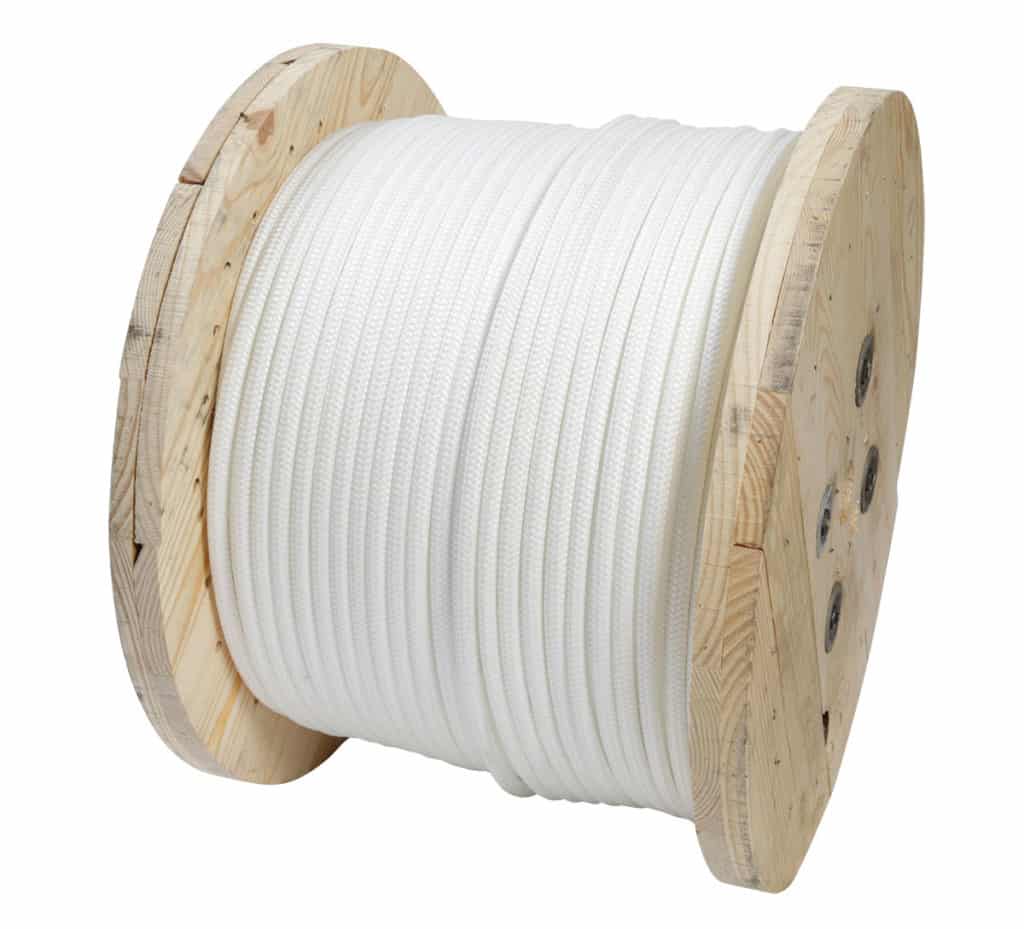
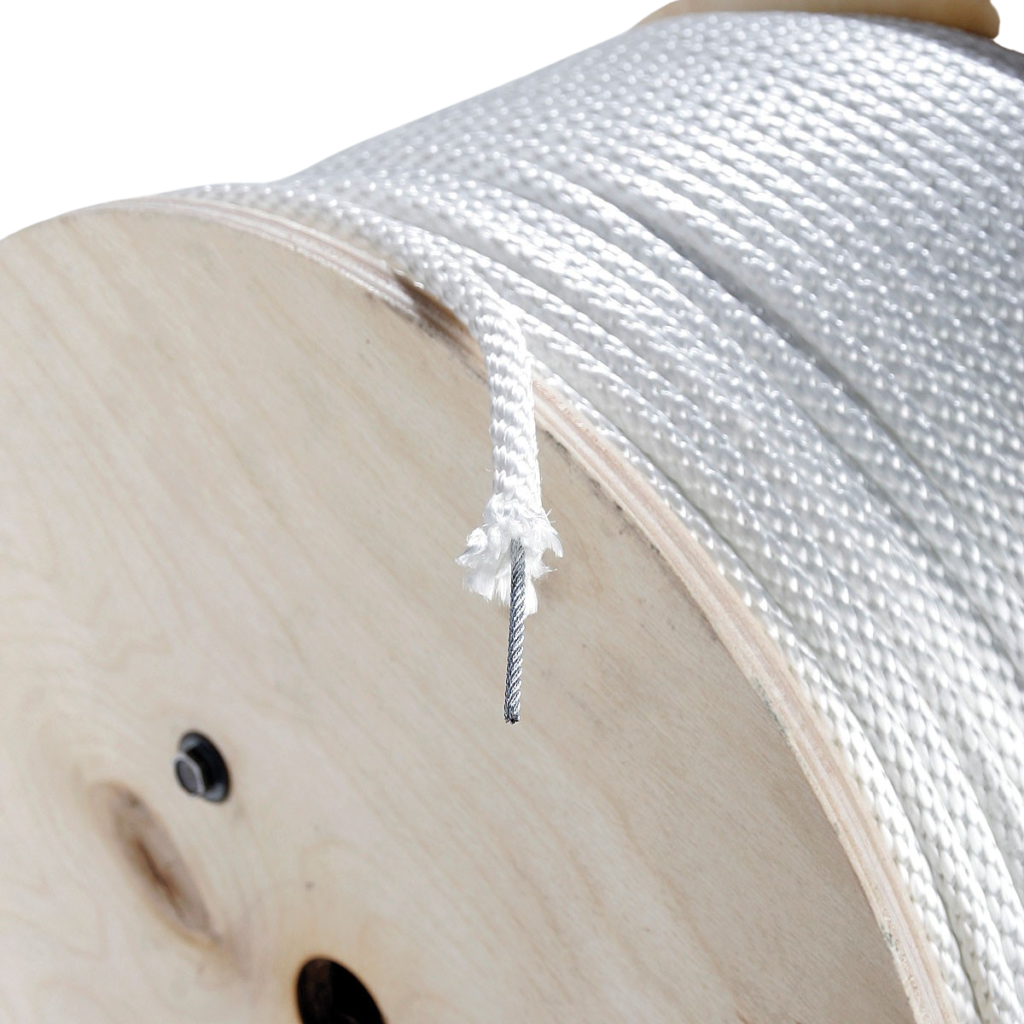
Which Erin Rope Is Right for You?
Choose Erin Rope Polyester Rope If:
- You need a low-stretch, high-durability rope.
- You’re working in sunny, wet, or chemically harsh environments.
- Your application requires stability under tension.
Choose Erin Rope Nylon Rope If:
- You’re managing shock loads (e.g., towing, anchoring).
- You need high tensile strength and elasticity.
Conclusion
Both our polyester and nylon ropes deliver premium performance, but their differences are crucial when selecting the right rope for the job. Polyester excels in outdoor static applications with minimal stretch, whereas nylon is best suited for dynamic, high-load environments where shock absorption is crucial.
If you’re looking for top-quality, American-made rope, we offer a wide range of options to fit your individual needs. Contact our sales team today at [email protected] to start your next order.


